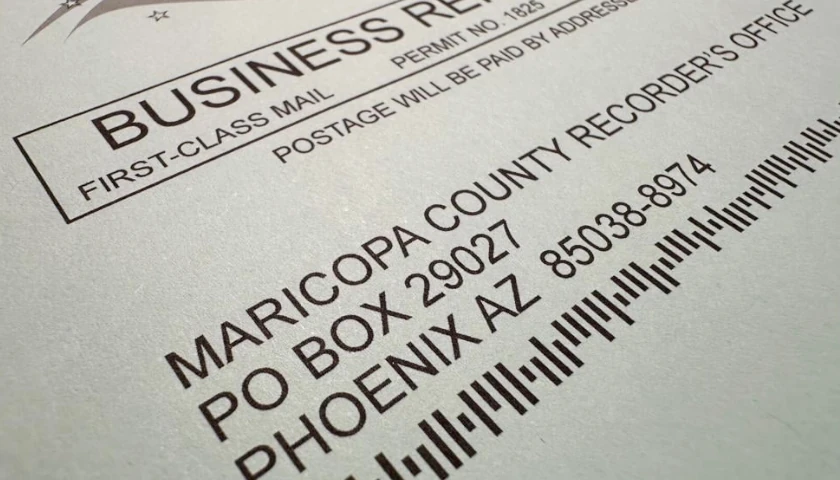Connecticut Governor Ned Lamont (D) announced a ballot measure for a constitutional amendment to allow in-person early voting in the state had been passed by voters, Hearst reported Wednesday.
Lamont “said the question had been passed by voters as he began his speech Tuesday night in which he declared victory in his own race,” the report said.
“Sorry to keep you waiting so long,” Lamont said, according to the report. “Now you know why I’m a strong believer in early voting, which passed.”
Unofficial results show Democrats keeping all state offices and Connecticut’s entire congressional delegation.
As of Thursday, the Connecticut secretary of state’s website was reporting 60.25 percent of voters were in favor of early voting while 39.75 percent were not.
If the ballot measure is shown to be officially approved, the early voting issue would then return to the state legislature next year for language and rules that would apply to its implementation.
Nevertheless, a lawsuit filed by New Britain resident Noemi Soto argues the amendment is unlawful.
Soto, who filed a pro se complaint, said the amendment should be declared “legally null and void in its entirety,” because the prospect of early voting places her in “danger of losing her substantial rights, power and privilege over ballot scrutiny and election integrity.”
“Most people are not going to understand because they’re just going to look at the question and be like, ‘Oh, yeah, I want early voting,’” Soto told CT Insider Tuesday. “They’re not seeing and they’re not going to know that ballot security measures are being essentially stolen from them constitutionally.”
Soto claims state lawmakers failed to follow the rules regarding the process of approval of constitutional amendments. Consequently, she alleges the ballot measure Connecticut voters were asked to weigh was invalid.
The lawsuit provides background of a resolution to allow early voting, first proposed in 2019, that was approved by a legislative committee but then died. In 2021, HJ-59 was introduced and ultimately passed.
In her complaint, Soto claims HJ-59 was more expansive than the former resolution in that it called for an amendment to the state’s constitution to “remove the Constitutional requirement to submit election results to the Secretary of State under seal.”
“HJ-59 was erroneously considered approved by the CGA (Connecticut General Assembly) under the instruction that they only needed ‘at least a majority of the total membership of each house,’” the lawsuit asserts.
Soto told CT Insiderf the differences between the original resolution and the current one are “incredibly serious.”
“The 2021 bill is not a continuation of the former bill. It is a new bill because it is materially different,” she said.
A judge held a hearing Tuesday but then continued the case until next week when the state attorney general’s office must appear for a status conference.
Connecticut has been one of only four states in the nation without any form of in-person early voting. Voters may request an absentee ballot if unable to cast their votes at their local polling place on Election Day.
Secretary of State-elect Stephanie Thomas (D) said she felt “fantastic” about the numbers in favor of early voting thus far.
– – –
Susan Berry, PhD, is national education editor at The Star News Network. Email tips to [email protected].
Photo “Ned Lamont” by Ned Lamont.





